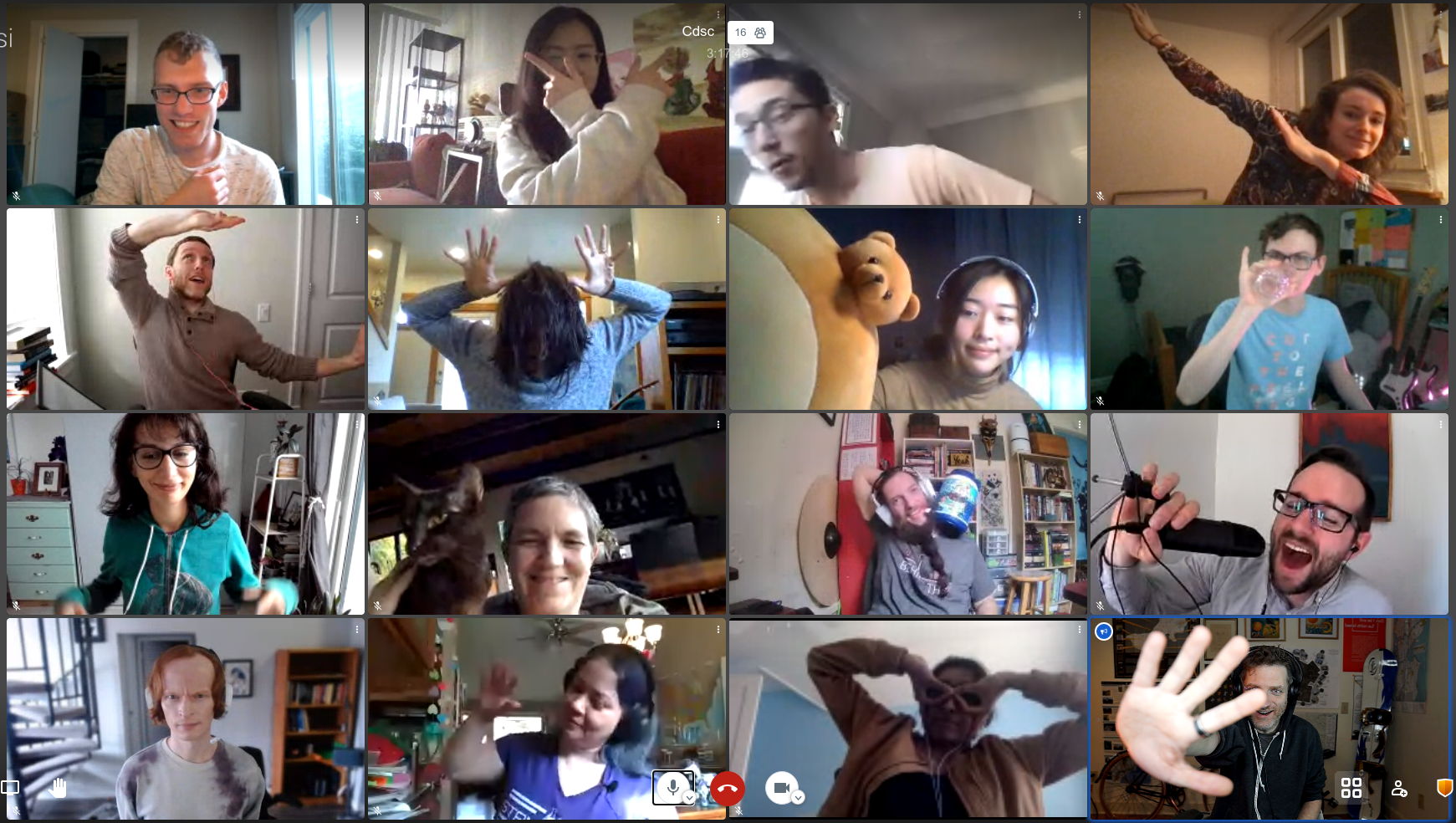Main Page
The Community Data Science Collective is an interdisciplinary research group made of up of faculty and students at the University of Washington Department of Communication, the Northwestern University Department of Communication Studies, the University of North Carolina School of Information and Library Science, the Carleton College Computer Science Department, and the Purdue University School of Communication.

We are social scientists applying a range of quantitative and qualitative methods to the study of online communities. We seek to understand both how and why some attempts at collaborative production — like Wikipedia and Linux — build large volunteer communities and high quality work products.
Our research is particularly focused on how the design of communication and information technologies shape fundamental social outcomes with broad theoretical and practical implications — like an individual’s decision to join a community, contribute to a public good, or a group’s ability to make decisions democratically.
Our research is deeply interdisciplinary, most frequently consists of “big data” quantitative analyses, and lies at the intersection of communication, sociology, and human-computer interaction.
Research News
Follow us as @comdatasci on Twitter and subscribe to the Community Data Science Collective blog.
Recent posts from the blog include:
- Replication data release for examining how rules and rule-making across Wikipedias evolve over time
- While Wikipedia is famous for its encyclopedic content, it may be surprising to realize that a whole other set of pages on Wikipedia help guide and govern the creation of the peer-produced encyclopedia. These pages extensively describe processes, rules, principles, and technical features of creating, coordinating, and organizing on Wikipedia. Because of the success of …
- — sohw 2024-03-25
- Sources of Underproduction in Open Source Software
- Although the world relies on free/libre open source software (FLOSS) for essential digital infrastructure such as the web and cloud, the software that supports that infrastructure are not always as high quality as we might hope, given our level of reliance on them. How can we find this misalignment of quality and importance (or underproduction) …
Continue reading "Sources of Underproduction in Open Source Software"
- — kaylea 2024-01-23
- FLOSS project risk and community formality
- ...operating less formally and sharing power is associated with lower risk...
- — mgaughan 2024-01-22
- A new paper on the risk of nationalist governance capture in self-governed Wikipedia projects
- Wikipedia is one of the most visited websites in the world and the largest online repository of human knowledge. It is also both a target of and a defense against misinformation, disinformation, and other forms of online information manipulation. Importantly, its 300 language editions are self-governed—i.e., they set most of their rules and policies. Our new …
- — zarine 2024-01-15
Courses
In addition to research, we teach classes and run workshops. Some of that work is coordinated on this wiki. A more detailed lists of workshops and teaching material on this wikis is on our Workshops and Classes page. In this page, we only list ongoing classes and workshops.
Purdue Courses
- [Fall 2022] Communication and Social Networks (COM 411, Fall 2022) – This class focuses on understanding how the structure of relationships between people influence communication patterns and behavior. This perspective can help us to understand a broad set of phenomena, from online communities to friendships to businesses. The course will also introduce students to using network visualizations to gain and share insights about network phenomena. Taught by Jeremy Foote.
- [Fall 2022] Intro to Programming and Data Science (COM 674, Fall 2022) Taught by Jeremy Foote.
University of Washington Courses
- [Spring 2022] COM528: Designing Internet Research — A MA/PhD class offering a survey of several Internet research methods taught by Benjamin Mako Hill.
- [Spring 2022] COM594: Professional Development Proseminar: Writing for Publication (Spring 2022) — A one-credit course on writing for publication that is part of the UW MA/PhD program's professional development proseminar series. Taught by Benjamin Mako Hill.
- [Spring 2022] HCID590: Design, Use, Build (DUB) Seminar — A one-credit course in the MHCI+D program at UW built around the DUB Seminar speakers series. Taught by Benjamin Mako Hill.
Public Data Science Workshops
Community Data Science Workshops — The Community Data Science Workshops (CDSW) are a series of workshops designed to introduce some of the basic tools of programming and analysis of data from online communities to absolute beginners. The CDSW have been held six times in Seattle between 2014 and 2020. So far, more than 100 people have volunteered their weekends to teach more than 500 people to program in Python, to build datasets from Web APIs, and to ask and answer questions using these data.
Research Resources
If you are a member of the collective, perhaps you're looking for CommunityData:Resources which includes details on email, TeX templates, documentation on our computing resources, etc.
About This Wiki
This is open to the public and hackable by all but mostly contains information that will be useful to collective members, their collaborators, people enrolled in their projects, or people interested in building off of their work. If you're interested in making a change or creating content here, generally feel empowered to Be Bold. If things don't fit, somebody who watches this wiki will be in touch.
This is mostly a normal MediaWiki although there are a few things to know:
- There's a CAPTCHA enabled. If you create an account and then contact any collective member with the username (on or off wiki), they can turn the CAPTCHA off for you.
- Extension:Math is installed so you can write math here. Basically you just add math by putting TeX inside <math> tags like this: <math>\frac{\sigma}{\sqrt{n}}</math> and it will write .





